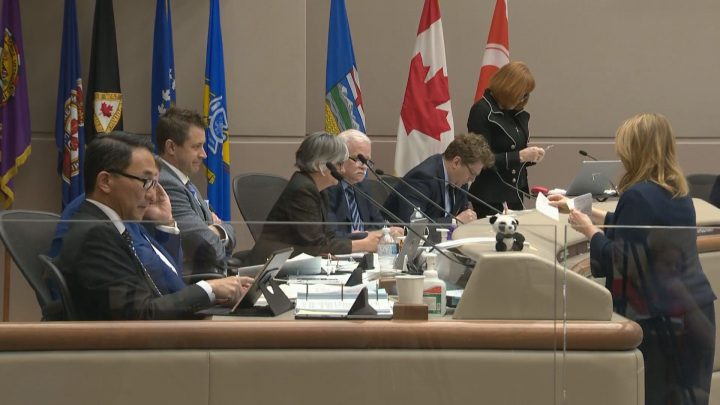A grant program for small business was one suggestion a city committee discussed Tuesday to help businesses around Calgary facing steep tax increases.

But the idea was almost overwhelmingly shot down.
Details of how the program would work were panned at the City of Calgary’s priorities and finance committee. $35.9-million out of a possible $70.9-million would be used in the first year of the program. Businesses with fewer than 20 employees could apply for a grant that would range from $750 to $4000.
The money would come out of the city’s so-called rainy day fund and budget savings account, costing $1.5 million to administer.
Mayor Naheed Nenshi, a proponent of the grant program, said small businesses could leverage their awarded funds to create more revenue.
“If you are the pizza shop on the corner and you get a grant for $1000, it may not sound like much but that $1000 can allow you to do a flyer and coupon campaign that increases your revenue by $5000 or $10,000,” the mayor said Tuesday.
But Ward 8 councillor Evan Woolley said the grant amounts almost seem like adding insult to an injurious property tax increase.
“If my property taxes went up $20,000 and I received a rebate of $750, how do you think I would feel as a business owner?,” Woolley said.
Ward 3 councillor Jyoti Gondek opposed the grant, saying a lack of options is not a reason to vote for the grant program.
“There’s no way that we support this just because there’s not something better before this,” Gondek said Tuesday. “We build something better.”
Gondek referenced her previously-tabled concept of shifting the tax burden to residential properties to a 50-50 split.
She had proposed using $70.9 million as a rebate to homeowners to offset the increases they would face because of the tax shift.
“The defeated property tax shifts would have seen the average, non-residential property benefit from a savings of $5401. And that was referred to as peanuts at that time.
“Now I know that math is hard, but I’m pretty sure that $750 or $1000 or even $4000 is less than $5401.”
Gondek said, in talking to businesses, what was needed was to fix the disparity in the taxes paid between residential and non-residential ratepayers.
“The primary concerns of small businesses are that this program is not going to be equitable, and it won’t be enough, and it’s not providing certainty or predictability for the future, and those are all things they asked for.”








Comments